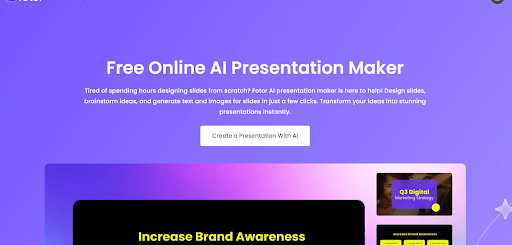AI-Based Hiring: The Future of Smarter Recruitment
The hiring landscape is evolving at lightning speed. In a world where agility, fairness, and efficiency are critical, businesses are increasingly turning to artificial intelligence (AI) to gain a competitive edge. Among its many transformative applications, AI-based hiring stands out as a game-changer, enabling companies to attract, assess, and hire talent more effectively than ever before. From global corporations to agile startups, the adoption of AI in recruitment is not just a trend—it’s a necessity. But what does it mean? What are the benefits, challenges, and future opportunities? This comprehensive look into AI-powered hiring answers those questions and more.
What Is AI-Based Hiring?
AI-based hiring refers to the use of artificial intelligence technologies—like machine learning, natural language processing, and predictive analytics—to streamline the hiring process. These systems assist recruiters in tasks like:
- Resume screening
- Candidate ranking and matching
- Automated interview scheduling
- Predictive performance analysis
- Chatbot-based applicant communication
While traditional hiring methods can be slow, biased, and expensive, AI offers a more data-driven, efficient alternative—provided it’s used wisely.
Global AI Hiring Statistics You Should Know
The rise of AI in recruitment is backed by compelling data from across the globe:
- 99% of Fortune 500 hiring managers say they use some form of AI in recruitment today.
- 98% of those managers reported significant improvements in hiring speed and accuracy with AI tools.
- The global AI recruitment market was valued at $661.56 million in 2023 and is projected to reach $1.12 billion by 2030.
- 44% of companies using AI in hiring saw a 30% reduction in costs and a 50% decrease in time-to-hire.
- 88% of global HR departments are currently using AI technologies in some capacity.
These numbers show that AI is no longer a future innovation—it’s already transforming how the world hires talent.
Why Are Companies Embracing AI in Recruitment?
Let’s break down the key advantages that are driving the mass adoption of AI in hiring processes:
1. Speed and Efficiency
AI tools can process thousands of resumes in seconds, identifying top candidates based on skills, experience, and role fit. This drastically cuts down manual work and reduces time-to-hire.
2. Cost Reduction
Hiring is expensive. AI reduces costs by automating tedious tasks like screening and interview coordination. Companies can allocate their human resources more effectively.
3. Improved Candidate Experience
AI chatbots and auto-responders provide timely updates, answer questions, and keep candidates engaged throughout the process—leading to higher satisfaction and brand value.
4. Better Matching
Advanced algorithms assess candidates’ behavioral traits, communication styles, and even cultural fit. Some platforms even predict future performance based on historical data.
5. Scalability
Whether a company is hiring 10 or 1,000 employees, AI platforms can easily scale to meet demand—something that’s much harder with a traditional recruiting team alone.
Challenges and Concerns
Despite its advantages, AI-based hiring also presents some complex challenges:
1. Bias and Discrimination
AI systems can inherit biases present in training data. If past hiring decisions were biased, AI could replicate and even amplify those problems.
2. Lack of Transparency
Candidates and HR professionals often don’t understand how AI makes decisions. The “black box” nature of some algorithms raises concerns about fairness.
3. Over-Reliance on Technology
Human intuition still plays a crucial role in recruitment. Over-automating the process risks missing critical soft skills and interpersonal dynamics.
4. Data Privacy and Ethics
Handling candidate data requires strict compliance with privacy laws like GDPR and CCPA. Misuse or data breaches can result in serious reputational damage.
Real-World Applications of AI in Hiring
Let’s explore how AI is used by companies around the world:
- Unilever uses AI video interviews to assess candidates’ body language, tone of voice, and word choice.
- Google leverages AI for predictive modeling to forecast an applicant’s likelihood of accepting an offer.
- LinkedIn uses machine learning to match job seekers with roles and recommend passive candidates to recruiters.
- Startups like HireVue, Pymetrics, and SeekOut are building AI tools to assess cognitive abilities, personality traits, and even culture fit.
These use cases demonstrate that AI is already deeply embedded in recruitment strategies at every level.
What’s Next? The Future of AI in Recruitment
As AI continues to evolve, we can expect even more sophisticated applications in hiring. Here are some upcoming trends to watch:
- Augmented Recruiting Assistants: AI tools that help, not replace, recruiters by providing real-time suggestions during interviews.
- Predictive Analytics: Using AI to forecast long-term success and employee retention before an offer is made.
- Bias Auditing Tools: New software will help recruiters audit AI models for bias and ensure ethical compliance.
- End-to-End Automation: Fully automated pipelines for screening, assessment, and onboarding are on the horizon.
To stay ahead, businesses need to embrace these technologies while committing to fairness, transparency, and human oversight.
How to Start with AI in Hiring
If you’re considering AI integration in your recruitment strategy, here are a few tips:
- Start Small: Use AI for resume screening or scheduling before moving to complex decision-making.
- Choose the Right Platform: Evaluate tools based on scalability, ease of use, and compliance features.
- Involve HR Early: AI isn’t just a tech initiative—it’s a human process. Get HR teams involved from day one.
- Ensure Legal and Ethical Compliance: Work with legal teams to avoid discrimination and data violations.
- Combine AI with Human Judgment: Let AI do the heavy lifting but always keep a human in the loop.
Final Thoughts
AI is not here to replace recruiters but to empower them. With AI-based hiring, companies can hire faster, smarter, and more equitably. However, the key lies in balancing the power of AI with the insight, empathy, and ethical responsibility that only humans can bring to the hiring process.


